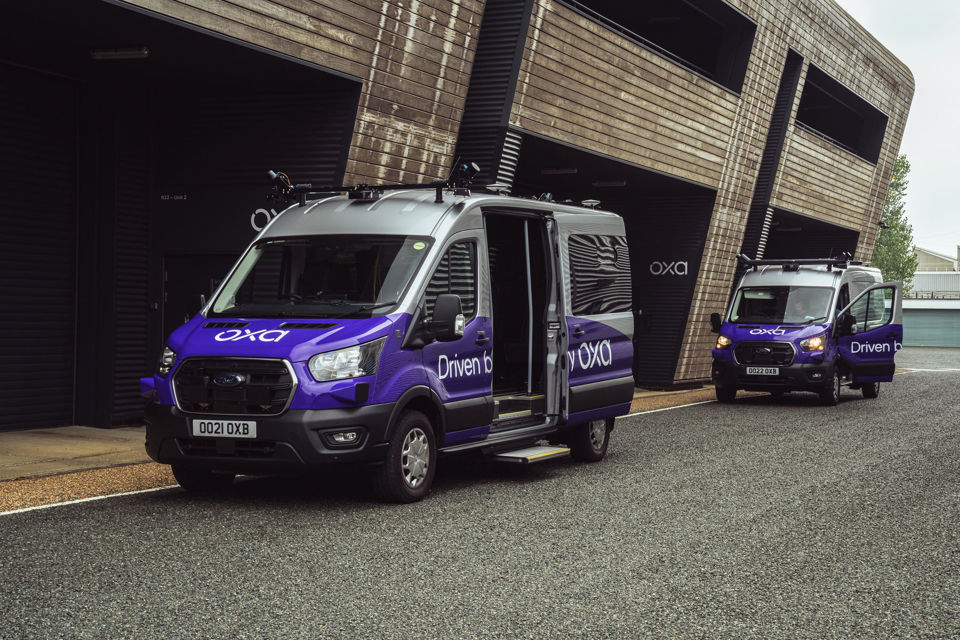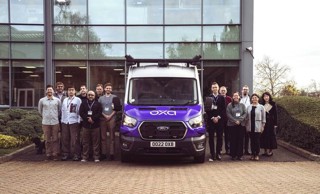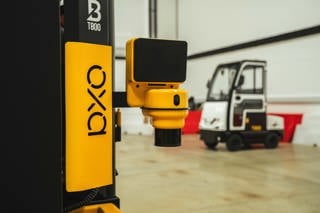Pilots of self-driving taxi and bus services will now start on England’s roads in spring 2026 – a year earlier than expected – with Government keen for the UK to be leaders in autonomous vehicles.
Firms will be able to pilot small scale “taxi- and bus-like” services without a safety driver for the first time – which could be available to members of the public to book via an app – before a potential wider rollout when the full Automated Vehicles (AV) Act becomes law from the second half of 2027.
The Department for Transport (DfT) previously said it was working “quickly” to make driverless vehicles a reality on the country’s roads and expected to implement self-driving vehicle legislation in the “second half of 2027”.
Bringing forward the pilots of self-driving vehicles, says the DfT, will help create 38,000 jobs and an industry worth £42 billion by 2035.
Transport secretary Heidi Alexander said: “The future of transport is arriving. Self-driving cars could bring jobs, investment, and the opportunity for the UK to be among the world-leaders in new technology.”
She stressed that road safety would be “at the heart” of the trials and legislation.
The Automated Vehicles Act will require self-driving vehicles to achieve a level of safety at least as high as competent and careful human drivers, and they will undergo rigorous safety tests before being allowed on our roads.
By having faster reaction times than humans, and by being trained on large numbers of driving scenarios, including learning from real-world incidents, the DfT says that self-driving vehicles can help reduce deaths and injuries.
Technology secretary Peter Kyle said: “It’s great to see the UK storming ahead as a global leader in using this technology - making our roads safer, travel easier and driving growth by spurring innovation across the country.
“That’s why we’re bringing timelines forward today, placing the UK firmly in the fast lane and creating opportunity along the way so people across the country benefit.”
Self-driving trials have already been taking place in the UK since January 2015, with British companies Wayve and Oxa spearheading significant breakthroughs in the technology.
From spring 2026, the Government claims that self-driving cars without a safety driver could be available for people to book via an app for the first time.
Wayve recently secured a record-breaking investment of more $1 billion and announced recent partnerships with Nissan and Uber, while Oxa has already supported 'bus-like' services in the US and started rolling out self-driving vehicles at Heathrow Airport to improve baggage handling.
Alex Kendall, co-founder and CEO at Wayve, said: “The UK has been Wayve’s home since 2017 – building this technology here has been an incredible journey, from testing our first prototype in Cambridge to deploying the world’s first end-to-end AI driver on public roads, starting in London and expanding nationwide.
“Accelerating commercial self-driving pilots to 2026 positions the UK as a leading destination for the deployment of L4 self-driving technology.
“These early pilots will help build public trust and unlock new jobs, services, and markets. For Wayve, this means we can prioritise the UK for early deployment and help deliver safer, cleaner mobility to the UK.
“We’re excited to bring the benefits of L4 autonomous mobility to cities around the UK.”
Mike Hawes, chief executive of UK automotive trade body, the Society of Motor Manufacturers and Traders (SMMT), also welcomed the move.
“Britain’s self-driving vehicle revolution moves one step closer, with today’s announcements putting the country on track to reap the road safety and socio-economic benefits this technology can deliver,” he said.
“Pilot rollout of commercial self-driving services from next year will widen public access to mobility, while the consultation will ensure the technology is deployed in a safe and responsible way.
“These latest measures will help Britain remain a world leader in the development and introduction of self-driving vehicles, a manifest application of AI at its finest.”
Gavin Jackson, Oxa's CEO, believes that “clear rules” will open up the market and encourage transport companies to introduce the benefits of autonomous vehicles across the country.
“Today's announcement shows that Britain is ready for this technology,” he added.

























martinwinlow - 10/06/2025 14:21
Whilst I am grateful to FN for bringing UK's Wayze to my attention (never heard of them before this), I am mildly surprised that there is no mention of Tesla FSD in the article, especially given the timing, with FSD about to be unleashed to the general public in Austin, Tx. Comparing the exposure of the 2 companies on Youtube, for example, well... there is no comparison. Yt has thousands of FSD videos; Wayze merely a handful. This seems a shame given how advanced Wayse's platform appears to be (not to mention that it is approaching the problem in the same way as Tesla, ie a 'neural net' approach).